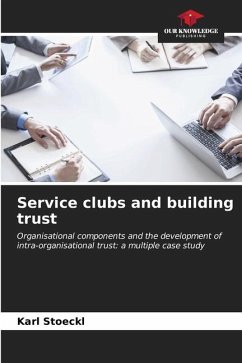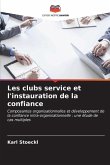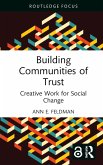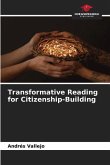Service clubs fulfil, in many ways, responsibilities that by law would be the responsibility of the government. Within a dogmatic system with stronger social ties, such as the one found in these clubs, there is a fundamental feeling: TRUST. This study investigates the relationship between organisational components (people, strategies, processes, policies/patterns of behaviour and values/culture) and the development of trust in these third sector organisations. The research had a qualitative approach, consisting of a case study as the method of investigation, taking as units of analysis three service clubs, representing the Lions Club, the Rotary Club and the Masonic Lodges. In this context, the research analyses trust, seeking to verify its development and its importance in the relationships between the participants of each club. Despite some similarities, each of the clubs has different conceptions of what trust is and how it develops. It is during the reading of the text that the reader will discover how this trust is built and its influence on the members of each organisation.
Bitte wählen Sie Ihr Anliegen aus.
Rechnungen
Retourenschein anfordern
Bestellstatus
Storno








